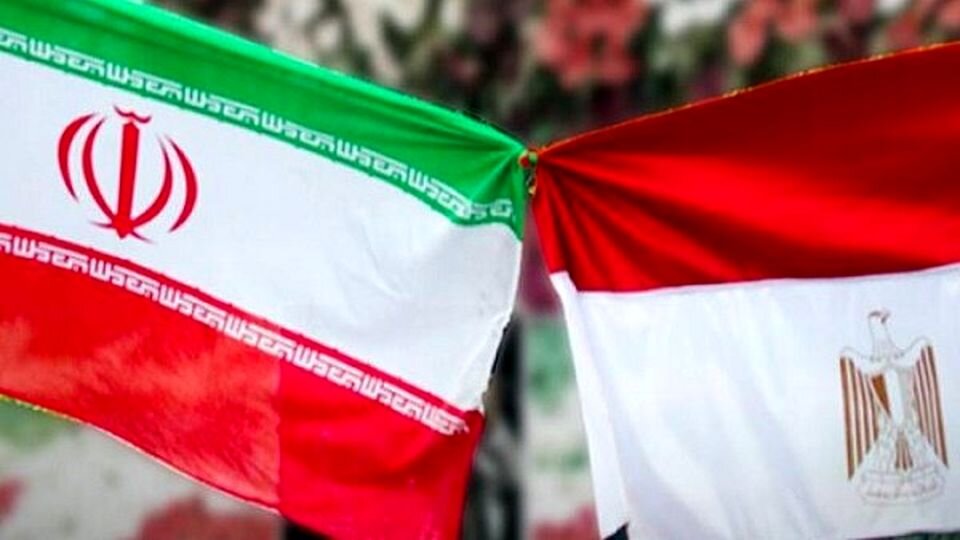Tehran-Cairo on threshold of compromise and mutual understanding: analysis

TEHRAN- Hossein Ebrahim Nia, an expert on Egypt affairs, says after several decades of turmoil and ambiguity in Iran-Egypt relations it has been about for a year that the two countries have been sending signals to resume relations.
Recently the head of the Egyptian Foreign Affairs Council has welcomed a proposal by Iraq to mediate between Iran and Egypt and emphasized the importance of Tehran-Cairo relations.
“No doubt, strengthening mutual cooperation between them as the two nations with ancient civilizations will have an effect on their role and power in the region,” Ebrahim Nia wrote on the Strategic Council on Foreign Relations (SCFR) website on January 14.
Following This is the text of the article:
What adds to the necessity of following up the successive messages from both Iran and Egypt is the influential weight of the two countries in West Asia and North Africa to settle some insoluble issues that require a serious need to solve the problems in relations between the two countries.
However, it should be noted that the existing gap in the relations between the two countries cannot be easily mended and it is necessary to first focus on the challenging issues in the region that are of strategic importance for both sides. So, it can be a starting point for strategic negotiations between the two countries, especially since Egypt has defined its foreign policy in an Arab and not an African framework. This makes the progress of the desire of the two sides to resume relations more complicated.
This complexity is also caused by the existing challenges in relation to the Persian Gulf countries and the issue of the relationship between Iran and Saudi Arabia, which will directly affect this process. In fact, Cairo has always considered the sensitive parameters of the Arab countries of the region in its foreign policy and has been careful about its strategic relations with those countries.
Although the mentioned factors add to the complexity and difficulty to resume the relationship between the two countries, at the present time, both Iran and Egypt can jointly solve some of the crises in their regions, especially in the field of security and foreign policy through mutual understanding and by leaving behind the remaining differences from the past. Also, by establishing relations, they should recognize the areas of consensus and how to expand and deepen the areas of joint cooperation, and subsequently give the two countries political, cultural and economic benefits, opportunities and privileges. Likewise, this proximity can have a positive effect on developments in West Asia and North Africa, especially on the security axis. For example, Iran and Egypt are located in two important geopolitical points of the world.
The Strait of Hormuz in the Persian Gulf and the Suez Canal in the Red Sea are two strategic passages in the world. Iran’s geographical location in the Persian Gulf region, its proximity to Central Asian countries and the Caucasus republics, benefitting from huge oil and gas resources and regional influence are among the components that show Iran’s importance for Egypt. On the other hand, Egypt’s geographical location at the junction of two continents, Africa and Asia, shows the importance of that country for Iran, especially in the sphere of influence in Africa as the future continent in the world politics.
At the same time, it should be kept in mind that developments in the world from 2025 to 2030 are going in a direction that will cause wide changes upon entering the 30s of the present century; therefore, the players of the international system, whether at global or regional level, by taking actions and reactions, are trying to complete this era and have the least problems; that is to say reduce and manage the destructive and erosive effects of such developments on their interests and national security. So it is possible to evaluate the current signs of the two countries in the direction of negotiations.
In fact, following the current and future developments in the world, Iran and Egypt are forced to manage the pressures of the international system by creating a suitable and managed platform with new coalitions; meanwhile, the three factors of security, economy, and politics will be more effective on the talks; for example, in the field of economy, the two countries with two different continents are looking for new markets.
Therefore, it is predicted that Iran and Egypt, although face many external and internal complications for rapprochement, due to mutual interests and pressures of regional and extra-regional factors, they will start strategic dialogues in the near future. Now, Tehran and Cairo have come to the reality that in many issues concerning the region, including the issue of security and terrorism, establishing political stability, and economic markets, they have mutual geopolitical interests and are a point of connection for each other’s political, security and economic interests in the region. No doubt, strengthening mutual cooperation between them as the two nations with ancient civilizations will have an effect on their role and power in the region.
Leave a Comment